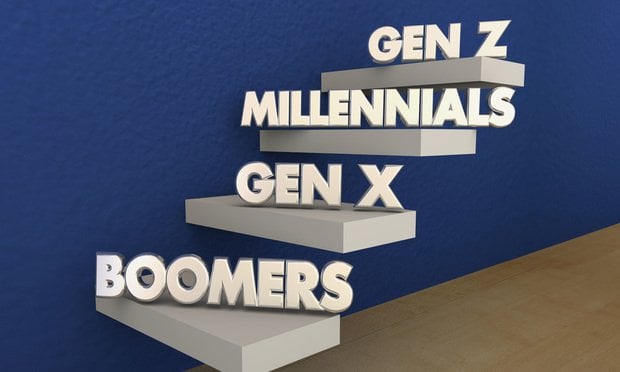On Wednesday, the Supreme Court handed down a unanimous decisionagainst the fiduciaries of two Intel Corp. defined contribution plans.
|At issue before the court in Intel Corp. Investment PolicyCommittee v. Sulyma was a statute of limitation provision under theEmployee Retirement Income Security Act.
|Related: 'Massive' impact for sponsors, providersif SCOTUS rules against Intel
|The High Court upheld a decision in the Ninth Circuit Court ofAppeals, ruling that a plan participant needs "actual knowledge" ofa fiduciary breach to trigger a three-year statute of limitation tofile suit against a plan sponsor.
|In 2015, a former Intel employee filed suit against the plan,alleging fiduciaries mismanaged plan assets by investing inalternative asset classes.
|At the District Court level, Intel won a motion to dismiss onthe grounds that the claim was brought outside of the three-yearwindow from the time the participant had knowledge of theallegation.
|The Ninth Circuit reversed that decision. Throughout thedispute, the plaintiff admitted to receiving plan documents explaining how his savings wereinvested, as well as visiting the online portal that hosted plandocuments.
|But he testified that he did not "think" he read the plandocuments, which the Ninth Circuit unanimously said was enough toshow he did not have "actual knowledge" of the claims he ultimatelybrought.
|A literal interpretation of ERISA
Under ERISA, participants can't sue plan sponsors after theearlier of six years from the time of a fiduciary breach, or threeyears after the time the plaintiff had "actual knowledge" of theviolation, according to the statute.
|Writing for the unanimous court, Justice Samuel Alito impliedthe issue before the justices was easy to answer.
|"The question here is whether a plaintiff necessarily has'actual knowledge' of the information contained in disclosures thathe receives but does not read or cannot recall reading," wroteAlito. "We hold that he does not."
|While ERISA does not define "actual knowledge," Alito said themeaning is "plain."
|"Dictionaries are hardly necessary to confirm the point, butthey do," wrote Alito, citing definitions of 'actual' from foursources.
|"To have 'actual knowledge' of a piece of information, one mustin fact be aware of it," he added.
|Alito's brief underscored that the adequacy of Intel'sdisclosures to the plaintiff was never at question.
|"That's what struck me about this case," said Kim Jones, anERISA attorney and partner at Faegre Drinker. "The individualaccessed the information on line numerous time, and they were ableto determine he accessed it."
|But that he did not "recall" reading the documents, or that hewas not aware that his savings were invested in alternative assets,was enough to call into question his actual knowledge.
|"I was not surprised by this decision," added Jones. "The courtlooked at what 'actual knowledge' is. Intel was arguing thatconstructive knowledge—that a reasonable person should know whatwas in the plan documents—was enough. But they couldn't get aroundthe fact that 'actual knowledge' is language in ERISA."
|A nudge toward electronic disclosures
The decision settles a circuit split on ERISA's actual knowledgeprovision. And it will have real ramifications for plansponsors going forward.
|"Receipt of a document does not give a participant actualknowledge of what's in it," said Kevin Walsh, a partner with TheGroom Law Group.
|"Before this case, it was unclear if you needed to getconfirmation that a participant has read a document, or if sendinga notice was sufficient. The Supreme Court has said it is not,"added Walsh.
|The ruling also comes in front of a new rule on electronicdocuments and disclosure, which is expected from the LaborDepartment this year.
|"I think the decision creates another big push towardselectronic disclosure," said Walsh. "In a paper world, it'simpossible for a sponsor to confirm everyone has read the mailthey've been sent."
|In reaction to the decision, more sponsors can be expected toinclude check-the-box disclosures confirming participants'understanding of plan documents, thinks Walsh.
|Jones agrees, but fears that would create a "logisticalnightmare" for sponsors.
|"I don't know if there is a clean way to do that. What if aparticipant reads a document, but doesn't check the box confirmingthey did," said Jones, who thinks the decision will encourage"blissful ignorance" among participants.
|Alito's brief concedes that the decision may "substantially"diminish ERISA's protections for fiduciaries. He also said rulingin favor of Intel would reduce ERISA's protections forparticipants.
|"Choosing between these alternatives is a task for Congress, andwe must assume that the language of (ERISA) reflects Congress'schoice," wrote Alito. "If policy considerations suggest the currentscheme should be altered, Congress must be the one to do that."
|The irony in that assessment? Congress did amend ERISA in 1987to remove a "constructive knowledge" clause, which would havegreatly aided Intel's case.
|"There's no easy way for sponsors to address this," said Jones."Other than trying to take the 'actual knowledge' language out ofERISA."
|READ MORE:
Complete your profile to continue reading and get FREE access to BenefitsPRO, part of your ALM digital membership.
Your access to unlimited BenefitsPRO content isn’t changing.
Once you are an ALM digital member, you’ll receive:
- Critical BenefitsPRO information including cutting edge post-reform success strategies, access to educational webcasts and videos, resources from industry leaders, and informative Newsletters.
- Exclusive discounts on ALM, BenefitsPRO magazine and BenefitsPRO.com events
- Access to other award-winning ALM websites including ThinkAdvisor.com and Law.com
Already have an account? Sign In
© 2024 ALM Global, LLC, All Rights Reserved. Request academic re-use from www.copyright.com. All other uses, submit a request to [email protected]. For more information visit Asset & Logo Licensing.









